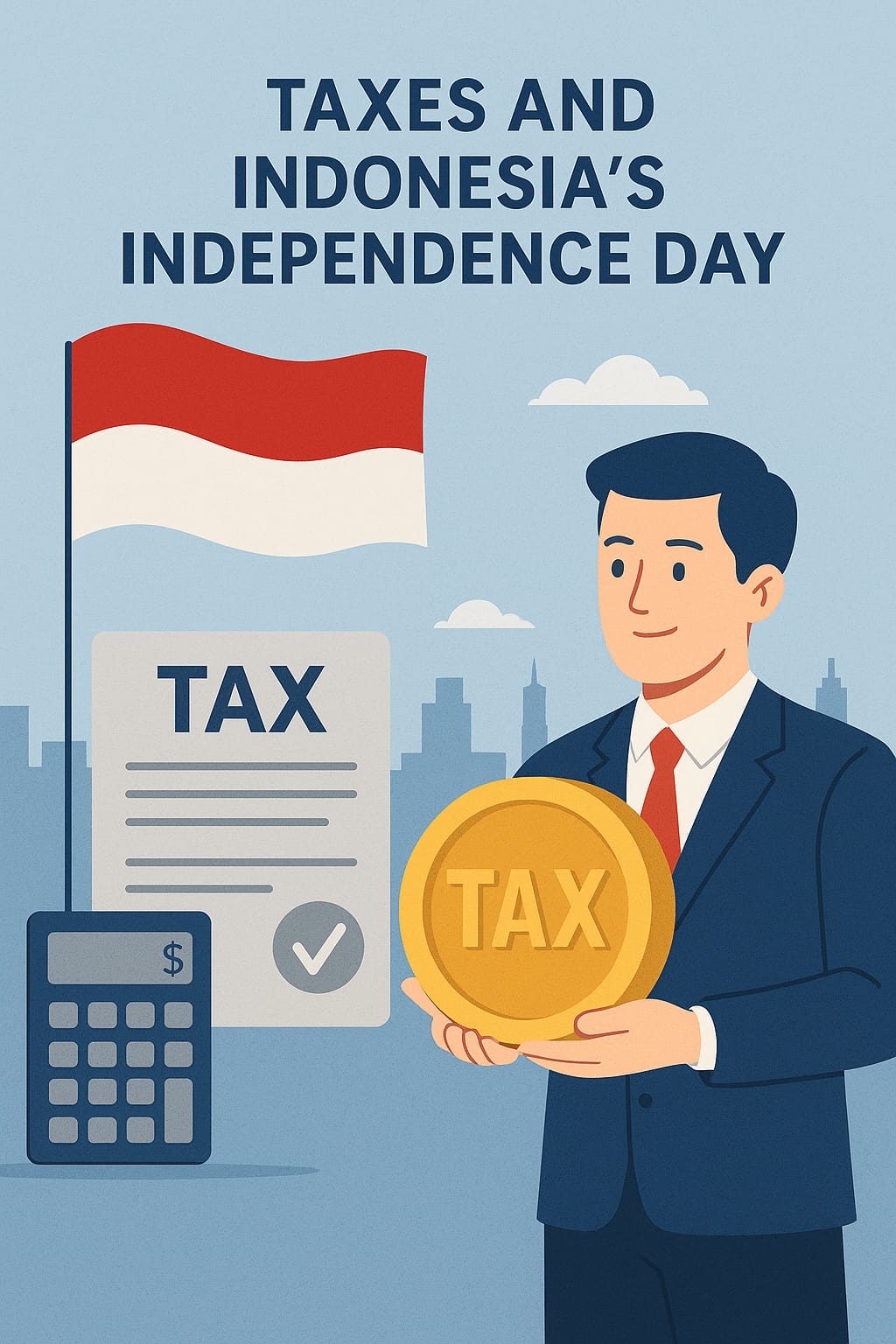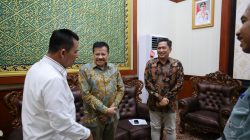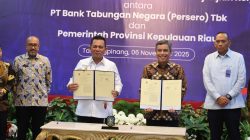Dr. H. Tirtayasa, S.Ag., M.A.
Graduate of the Thousand Ulema Doctor Cadre Program
Indonesian Ulema Council (MUI) and National Zakat Board (BAZNAS RI), Class of 2021
Every August 17, the red-and-white flag flies proudly in the sky, and the echo of the national anthem reminds us of the sacrifices of our heroes. The Independence Day of the Republic of Indonesia is not merely a celebration of liberation from colonial rule; it is also a moment to reflect on how this independence is maintained, strengthened, and passed on to the next generation. Among the many pillars that sustain a sovereign nation, taxes play a central role. Taxes are not just an economic instrument—they are a tangible manifestation of citizens’ participation in safeguarding independence and advancing the nation.
Taxes as the Economic Backbone of Sovereignty
Independence is inseparable from the concept of sovereignty, including economic sovereignty. Without strong financial resources, a country cannot maintain its independence in a real and sustainable way. Taxes are the main source of state revenue, financing infrastructure, education, health, and national defense (Bird & Zolt, 2023). In other words, the presence of taxes ensures that the ideals of independence are not merely historical narratives, but a continuous process of nation-building.
In the early days of independence, the Indonesian government faced enormous challenges: building institutions, developing the economy, and improving public welfare. Tax revenues, though limited, became the initial capital for national development (Basri, 2022). As the economy grew, so did the role of taxes as a source of financing that is independent from foreign aid or debt (Pomeranz, 2023).
The Spirit of Independence in Tax Compliance
Paying taxes can be seen as a concrete form of nationalism. In the spirit of independence, every citizen has a moral obligation to contribute to state revenues (Frey & Torgler, 2022). Unfortunately, public awareness of taxes often lags behind expectations. Some view taxes as a burden rather than a shared investment for the common good. This perception can be changed if citizens see clear, transparent, and accountable benefits from the taxes they pay.
The independence struggle was filled with collective sacrifices—material, energy, and even life. Today, while we are no longer required to take up arms, our contribution is expressed through fulfilling civic duties, one of which is paying taxes (Moore, 2021). Just as the heroes defended the nation physically, taxpayers defend it economically.
Taxes and Equality of Development
One of the most important functions of taxes is to redistribute wealth to achieve equitable development. This aligns with the spirit of independence, which seeks freedom not only from physical colonization but also from poverty, ignorance, and inequality (Tanzi & Zee, 2022). Tax revenues finance development in remote areas, build infrastructure in border regions, and support education for children in disadvantaged areas.
Equitable development is the key to ensuring that independence is felt by all citizens, not just by those in big cities. This is in line with the principle of social justice for all Indonesians, as stated in the Pancasila (Fossat & Bua, 2023).
Tax Challenges in the Digital Era
Indonesia’s independence today faces challenges different from those of 1945. In the digital era, the economy is undergoing a transformation, with e-commerce, digital services, and global transactions creating new dynamics in taxation (OECD, 2023). Without proper adaptation, the state risks losing potential tax revenues, which could threaten fiscal capacity.
The digital economy offers opportunities for economic growth, but it also creates gaps in regulation and taxation (Cockfield & MacLennan, 2022). The government must be able to modernize the tax system, expand the tax base, and implement fair rules without hampering innovation. This is part of the current “economic independence” struggle.
The Cultural Dimension of Taxation
Taxes are not only an economic issue, but also a cultural one. In countries with high tax compliance, there is a strong culture of trust between the government and citizens (Feld & Frey, 2022). This trust is built through transparency, accountability, and tangible benefits received by the public.
In Indonesia, efforts to strengthen the tax culture must be linked to national values. The spirit of mutual cooperation, which was one of the keys to independence, can be revived in the context of taxation: a joint effort for the common good (Prichard, 2021).
Taxes as a Form of Gratitude for Independence
Celebrating independence is not only about ceremonies and competitions, but also about tangible contributions to the nation. Paying taxes can be seen as a form of gratitude for the independence we enjoy (James & Nobes, 2023). Without adequate tax revenues, the government cannot finance public services, infrastructure, and national defense—three things that maintain our sovereignty.
Gratitude for independence also means realizing that the current comfort was earned through the sacrifices of previous generations. By paying taxes properly, we are continuing their struggle in a modern context (Ali & Ahmad, 2022).
Learning from Other Countries
Many countries that gained independence in the 20th century faced the challenge of building strong state institutions. Those that successfully built effective and fair tax systems were able to achieve higher economic growth and stability (Besley & Persson, 2023). For example, South Korea, which was poor in the 1950s, managed to transform into a developed country in part through effective tax policies.
Indonesia can take lessons from these experiences: the spirit of independence must be translated into concrete policies that strengthen state finances and ensure justice in taxation (Zolt, 2022).
Conclusion: Guarding Independence through Taxes
Taxes and independence are two inseparable sides of the same coin. Independence without strong state finances is fragile, and taxes without the spirit of nationalism are hollow. As we celebrate Indonesia’s Independence Day, we should remember that the fight for independence is not over—it continues in the form of our daily contributions to the nation’s progress.
Paying taxes may not sound as heroic as wielding a weapon in battle, but in the modern era, it is one of the most concrete and impactful acts of patriotism. Just as the heroes of the past fought with all their might to defend sovereignty, we too must fight to maintain it—this time, with integrity, awareness, and a sense of responsibility in fulfilling our tax obligations.
References
- Ali, S., & Ahmad, R. (2022). Tax compliance and national development: A socio-economic perspective. London: Routledge.
- Basri, C. (2022). Indonesian economy and fiscal policy in the post-independence era. Jakarta: LP3ES.
- Besley, T., & Persson, T. (2023). Taxation and development. Princeton: Princeton University Press.
- Bird, R., & Zolt, E. (2023). Tax policy design for developing countries. New York: Cambridge University Press.
- Cockfield, A., & MacLennan, S. (2022). Digital taxation: International perspectives. Oxford: Oxford University Press.
- Feld, L., & Frey, B. (2022). Tax compliance and trust. Cheltenham: Edward Elgar Publishing.
- Fossat, P., & Bua, M. (2023). Taxation for equitable growth. Washington, DC: World Bank Publications.
- Frey, B., & Torgler, B. (2022). Tax morale and civic duty. Berlin: Springer.
James, S., & Nobes, C. (2023). The economics of taxation. London: Bloomsbury. - Moore, M. (2021). Taxation and the state-building process. Brighton: IDS.
- OECD. (2023). Revenue statistics in Asia and the Pacific. Paris: OECD Publishing.
- Pomeranz, D. (2023). Tax systems in emerging economies. Cambridge: MIT Press.
- Prichard, W. (2021). Taxation, responsiveness, and accountability in developing countries. Cambridge: Cambridge University Press.
- Tanzi, V., & Zee, H. (2022). Tax policy for developing countries. Washington, DC: IMF.
Zolt, E. (2022). Global tax challenges in the 21st century. New York: Cambridge University Press.









